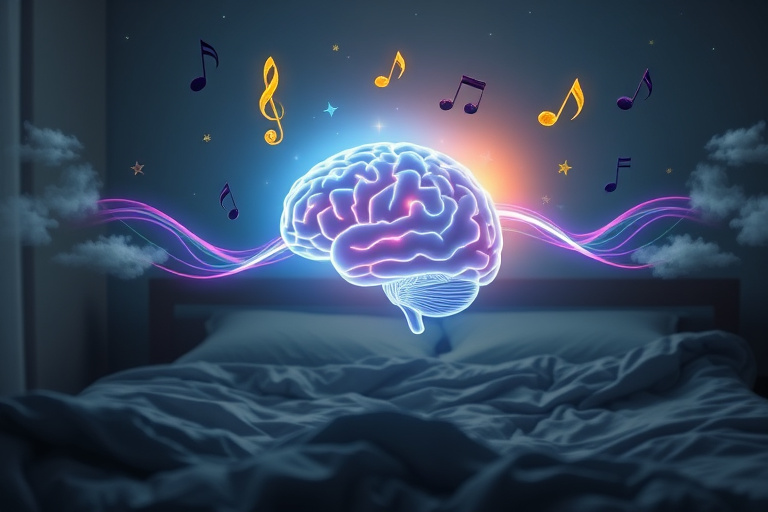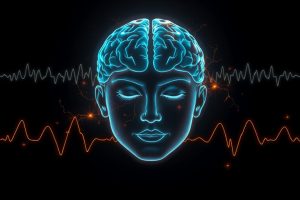Introduction
Quality sleep is fundamental to maintaining optimal mental and physical health. It influences everything from cognitive function and emotional regulation to immune response and metabolic processes. Despite its importance, many individuals struggle with sleep issues such as insomnia or fragmented sleep cycles, which can negatively impact overall well-being.
Recently, the concept of “the genius wave” has emerged as a promising approach to enhance sleep quality through brainwave modulation. This idea revolves around harnessing specific brainwave frequencies to promote relaxation and facilitate restorative sleep. The purpose of this article is to explore the science behind brainwave patterns, examine the benefits of leveraging the genius wave for sleep improvement, and discuss practical methods for integrating these techniques into your routine.
What Is the Genius Wave and How Is It Connected to Brainwaves?
Brainwave patterns are electrical impulses in the brain that reflect different mental states. These include alpha waves (relaxed alertness), theta waves (drowsiness or light sleep), delta waves (deep sleep), and beta waves (active thinking). Each type of brainwave is associated with specific cognitive and physiological states.
The term “the genius wave” often refers to particular brainwave frequencies believed to be linked with heightened cognitive function or deep relaxation. While not a formal scientific classification, it may describe a range of brainwaves—such as alpha or theta—that facilitate mental clarity, creativity, and calmness. Modulating these brainwaves through various techniques can influence sleep processes, potentially making it easier to transition into restful sleep and maintain it throughout the night.
Scientific research supports the idea that brainwave modulation can impact sleep by promoting relaxation and reducing stress, which are common barriers to falling asleep. By influencing brainwave patterns, it is possible to create an internal environment conducive to better sleep quality.
Scientific Evidence Supporting the Use of Brainwave Techniques for Sleep Improvement
Numerous studies have investigated the effects of brainwave entrainment—methods that use rhythmic stimuli to synchronize brainwaves—to improve sleep quality. For example, research has shown that auditory stimulation with specific frequencies can induce relaxation and reduce sleep onset latency.
One key study demonstrated that individuals exposed to alpha wave binaural beats experienced faster sleep onset and increased sleep efficiency. Similarly, neurofeedback training targeting specific brainwave frequencies has been associated with reductions in insomnia symptoms and improvements in sleep architecture.
While these findings are promising, the scientific community emphasizes that more rigorous, large-scale studies are needed to fully establish the efficacy of brainwave techniques for sleep enhancement. Nonetheless, current evidence suggests that targeted brainwave modulation is a viable, science-backed sleep technique worth exploring.
How Can Harnessing the Genius Wave Enhance Sleep Quality?
Modulating brainwaves may improve sleep by reducing hyperarousal and anxiety, common causes of insomnia. By encouraging brain activity associated with relaxation—such as alpha or theta waves—these techniques can facilitate the transition into sleep and promote more stable sleep cycles.
Practical methods for harnessing the genius wave include audio stimulation devices that produce binaural beats or isochronic tones aligned with desired brainwave frequencies. Neurofeedback training, which involves real-time monitoring of brain activity and guided adjustments, is another approach. Meditation practices that focus on calming the mind can also help induce brainwave states conducive to sleep.
Compared to traditional sleep hygiene methods—like maintaining a consistent sleep schedule or avoiding screens before bed—brainwave-based approaches offer a direct way to influence neural activity. When combined, these methods can provide a comprehensive strategy for sleep quality enhancement.
Safety and Scientific Validity of Genius Wave-Based Sleep Optimization
Most brainwave entrainment techniques and neurofeedback methods are considered safe when used appropriately. However, it is essential to choose scientifically validated tools and consult healthcare professionals before starting any new intervention, especially if you have underlying health conditions.
While many consumer devices claim to optimize brainwaves, not all are backed by rigorous scientific testing. It is advisable to select reputable products and seek guidance from qualified practitioners to ensure safety and effectiveness.
Overall, when used responsibly, brainwave entrainment for better sleep is a low-risk, non-invasive approach that can complement existing sleep hygiene practices.
Benefits of Integrating Genius Wave Techniques for Cognitive Function and Overall Well-Being
Improved sleep quality through brainwave modulation can lead to enhanced mental clarity, focus, and productivity during waking hours. Better sleep supports emotional stability and reduces stress, contributing to overall mental health.
Furthermore, sustained improvements in sleep cycles may support long-term brain health by promoting neuroplasticity and reducing the risk of neurodegenerative conditions. Incorporating techniques like neurofeedback or guided audio sessions into your routine can foster a cycle of restorative sleep and cognitive resilience.
In addition to sleep benefits, these methods can positively influence mood, energy levels, and resilience to daily stressors, making them valuable tools for holistic well-being.
Practical Steps to Incorporate Genius Wave Strategies into Your Sleep Routine
To effectively integrate genius wave strategies, start by selecting evidence-based tools such as guided audio tracks with proven frequencies or reputable neurofeedback programs. Consistency is key—use these tools regularly, ideally at the same time each night, to establish a calming pre-sleep routine.
Timing your sessions about 30 minutes before bed can help prepare your brain for sleep. Combining brainwave entrainment with other sleep practices—like maintaining a cool, dark, and quiet sleep environment—can further enhance results.
Remember to listen to your body and adjust the intensity and duration of sessions as needed. Consulting with a sleep specialist or neurofeedback practitioner can provide personalized guidance and maximize the benefits of these techniques.
Final Thoughts: What This Means for Your Sleep and Brain Health
The science behind the genius wave and brainwave patterns offers promising avenues for improving sleep quality through targeted, non-invasive methods. While these techniques are supported by emerging research, it is important to set realistic expectations and approach them as part of a comprehensive sleep strategy.
Before adopting new sleep optimization techniques, consider consulting healthcare professionals to ensure they are appropriate for your individual needs. With proper guidance and consistent practice, harnessing the power of brainwave modulation can be a valuable addition to your journey toward better sleep and enhanced brain health.
For more insights into how these concepts work together, you can explore The Genius Wave and learn how this innovative approach is shaping the future of sleep science.




